Maine Maritime Academy
A COLLEGE OF ENGINEERING, MANAGEMENT, SCIENCE, AND TRANSPORTATION
Marine Systems Engineering
|Bachelor's DegreeDevelop the critical-thinking, design-oriented, research-focused skills that will serve you well throughout your career in marine engineering through the marine systems engineering degree at Maine Maritime Academy. With Maine Maritime’s 5-year bachelor’s degree option, you’ll take the engineering operations courses you need to become a U.S. Coast Guard (USCG) 3rd assistant engineer. The marine systems engineering degree also serves as a launchpad to careers outside of marine engineering, including medicine, international business, maritime law, and academia.
Through this math-intensive bachelor’s degree program, you’ll develop the knowledge and skills to solve problems as a design engineer. You’ll learn from Ph.D. faculty who bring a range of experience in marine engineering to you, and you’ll engage in engineering problem-solving on the water because of Maine Maritime Academy’s location on Castine Harbor.


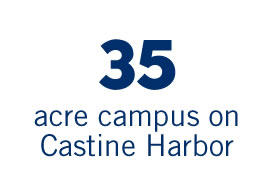
4-Year Track
You will be equipped for a broad range of shoreside careers in marine and mechanical engineering fields with this 4-year bachelor’s degree program. This academically rigorous program features naval architecture and marine engineering courses. You’ll gain hands-on experience working with marine systems through two industrial co-ops, and experience aboard the training ship, State of Maine. Through the 4-year track you’ll be eligible to sit for the Fundamentals of Engineering (FE) exam — your first step to becoming a professional engineer. While you’re not required to participate in the Regiment of Midshipmen, you may opt in.
5-Year Track
Through the 5-year track, you’ll earn a bachelor’s in engineering plus the license to become a USCG 3rd assistant engineer. The 5-year track prepares you for a career in merchant seafaring or marine and mechanical engineering. You will complete approximately 195 sea days of training through specialized labs, simulation, three distinct cruises, and one co-op. In your fourth year, you’ll be eligible to sit for the USCG 3rd Assistant Engineer license, unlimited horsepower, steam or motor, any ocean. At the end of the first semester of your fifth year you’ll also be eligible to take the FE exam. You’ll build your confidence and leadership skills through a four-year Regiment of Midshipmen requirement.
NECHE- and ABET-Accredited
Maine Maritime Academy is accredited by the New England Commission of Higher Education (NECHE). The marine systems engineering degree is accredited by the Engineering Accreditation Commission (EAC) of ABET, www.abet.org. This assures you the program meets the quality standards of the engineering profession.
Objectives of the Marine Systems Engineering Major
Three to five years after receiving a B.S. from Maine Maritime Academy, the typical Marine Systems Engineering graduate is expected to:
- Be competent and confident in his or her professional career and able to freely choose between graduate engineering education and engineering careers.
- Have demonstrated the professionalism, technical competence and versatility to be moving into positions of technical and leadership responsibility.
- Recognize that his or her undergraduate education at Maine Maritime Academy has provided a solid basis for assuming technical responsibilities and opportunities for continued career development.
- Understand the importance of social and ethical responsibilities in his or her engineering career.
Outcomes of the Marine Systems Engineering Major
Students will demonstrate the following through the Marine Systems Engineering program of study at the Academy:
- An ability to identify, formulate, and solve complex engineering problems by applying principles of engineering, science, and mathematics.
- An ability to apply engineering design to produce solutions that meet specified needs with consideration of public health, safety, and welfare, as well as global, cultural, social, environmental, and economic factors.
- An ability to communicate effectively with a range of audiences.
- An ability to recognize ethical and professional responsibilities in engineering situations and make informed judgments, which must consider the impact of engineering solutions in global, economic, environmental, and societal contexts.
- An ability to function effectively on a team whose members together provide leadership, create a collaborative and inclusive environment, establish goals, plan tasks, and meet objectives.
- An ability to develop and conduct appropriate experimentation, analyze and interpret data, and use engineering judgment to draw conclusions.
- An ability to acquire and apply new knowledge as needed, using appropriate learning strategies.
Enrollment
In the 2019 Fall semester, enrollment in the Marine Systems Engineering program was 76 students. Between August 16, 2018 and August 15, 2019, 8 students graduated from the program.
Student Perspective

What Is Marine Systems Engineering?
Marine systems engineering involves the systematic application of common sense, science and technology, mathematics, and liberal arts to solve practical problems in naval architecture and marine engineering.
Why Study Marine Systems Engineering at Maine Maritime Academy?
Prepare for a future in marine engineering through an undergraduate engineering program that’s ranked among the best in the nation by U.S. News & World Report. At the end of your first year, you’ll gain sea experience aboard Maine Maritime Academy’s 500-foot training ship, State of Maine. Maine Maritime graduates are first in line for high-paying jobs in marine engineering all over the world; they also get into top graduate engineering schools.
See where a degree focused on naval architecture and marine engineering can take you.
Sea time and co-op training
In addition to training aboard our floating lab, State of Maine, you’ll gain invaluable experience through training voyages and co-ops. If you choose the 5-year license track, you’ll test your knowledge, learn from professional seafaring officers, and see the world through a 60-day cadet shipping experience. Both 5-year and 4-year students gain additional hands-on experience through summer cooperatives at engineering worksites across the nation.
High-tech laboratories
Develop the competencies you’ll need in order to face the challenges of a marine engineering career through high-tech, on-campus specialized laboratories. From our power plant and control-room simulators to our small-scale operating steam plant and electrical power lab, you’ll have access to the very equipment you’ll use daily in your future career.
Regiment of Midshipmen
For their first four years, students in the 5-year license track are required to participate in the Regiment of Midshipmen, a uniformed student body. The Regiment provides excellent leadership preparation and helps you develop self-confidence and self-discipline. It’s also a great way to learn teamwork and form lifelong friendships. While 4-year students are not required to participate in the Regiment, many still opt in to gain the skills that are valued in marine engineering.
What Can You Do With a Marine Systems Engineering Degree?
Marine systems engineering students at Maine Maritime Academy are accepted into the nation’s top graduate engineering schools. They work as design engineers, research and development (R&D) engineers, and in other positions in marine engineering. They also serve in the United States Merchant Marine and in the military.
Career outlook in marine engineering
Employment of marine engineers and naval architects is projected to grow 9% through 2028, faster than the average for all occupations, according to the U.S. Bureau of Labor Statistics.
How much do marine systems engineering graduates make?
The median annual wage for marine engineers and naval architects was $92,560 in May 2018, according to the U.S. Bureau of Labor Statistics.
Alumni Perspective

Explore Classes for the Marine Systems Engineering Degree
One of the few such bachelor’s degree programs in the United States, the marine systems engineering degree at Maine Maritime Academy is academically rigorous. You’ll take 10 design/analysis courses with a strong hands-on marine component. Comparable to the mechanical engineering curricula at other engineering schools, the 4-year track is distinguished by additional naval architecture and marine engineering courses. Both pathways include arts and sciences courses to give you additional skills that employers value. Engineering faculty regularly consult with an industrial advisory committee to ensure naval architecture and marine engineering courses align with industry needs.
4 Year Track
- Fundamentals of Engineering Operations
- Introduction to Engineering Programming
- Engineering Design I
- Composition
- Calculus I
- Welding
- Any PE Course (Water Based)
- First Year Experience
- Engineering Chemistry
- Graphics
- Calculus II
- Physics I
- Ship Systems & Design
- Steam Generating Systems
- Diesel Power I
- Introduction to Thermal Fluid Science
- Engineering Statistics
- Prob & Statistics For Eng & Science
- Physics II
- Engineering Strength of Materials
- Machine Tool Operations I
- Thermal/Fluids Lab
- Engineering Thermodynamics II
- Enhanced Electrical Power I
- Engineering Math I
- Cooperative Experience Eng I
- Engineering Dynamics
- Power Controls Electronics
- Humanities I
- Differential Equations
- Introduction to Ocean Science
- Electrical Power II
- Steam Turbines I
- Engineering Design II
- Engineering Fluid Mechanics
- Numerical & Computer Methods for Engine
- Technical Communications
- Naval Architecture I
- Any EG/ES/ET/NA Course
- Cooperative Industrial Field Exp
- Control Systems Engineering
- Machine Design
- Engineering Materials
- Engineering Mathematics II
- Naval Architecture II
- Any EC/PY/SO Course
- Engineering Economics
- Humanities
- Capstone Design Project
- Any EC/HC/HUM/SS/HY/PY Course
- Any HC/HY Course
View all courses for the marine systems engineering degree - Non-License Track.
5 Year Track
- Fundamentals of Engineering Operations
- Introduction to Engineering Programming
- Engineering Design I
- Composition
- Calculus I
- Introduction to Nautical Science
- Personal Development I
- Ocean Survival
- USCG Fire Fighting
- Any PE Course
- Engineering Chemistry
- Welding
- Graphics
- Calculus II
- Personal Development I
- Physics I
- USCG Fire Fighting Live Burn
- Lifeboat Exam
- Maintenance - First Year
- First Year Cruise
- Steam Generating Systems
- Diesel Power I
- Introduction to Thermal Fluid Science
- Engineering Statistics
- Maintenance Sophomore Engine
- Personal Development II
- Physics II
- Power Equipment Lab
- Machine Tool Operations I
- Diesel Power II
- Engineering Thermodynamics II
- Enhanced Electrical Power I
- Engineering Math I
- Personal Development II
- Cadet Shipping Engine
- Steam Turbines I
- Engineering Dynamics
- Electrical Power II
- Humanities II
- Personal Development III
- Differential Equations
- Introduction to Ocean Science
- Engineering Strength of Materials
- Steam Power Systems I
- Engineering Fluid Mechanics
- Numerical & Computer Methods for Engine
- Thermal/Fluids Lab
- Personal Development III
- Technical Communications
- Maintenance Junior Engine
- Junior Cruise Engine
- Control Systems Engineering
- Marine Refridgeration & Air Conditioning
- Power Controls Electronics
- Medical Care Provider
- Maintenance Senior Engine
- Personal Development IV
- Prob & Statistics For Eng & Science
- Any HC/HY Course
- Steam Power Systems II
- Engineering Design II
- Engineering Economics
- Naval Architecture I
- Personal Development IV
- Any EC/PY Course
- Cooperative Industrial Field Exp
- Machine Design
- Engineering Materials
- Capstone Design Preparation
- Engineering Mathematics II
- Any Free Elective
- Capstone Design Project
- Humanities I
- Any Free Elective
- Any EC/HC/HUM/SS/HY/PY Course
View all courses for the marine systems engineering degree - USCG License Track.
Department Faculty
Get Started on Your Bachelor’s Degree in Marine Systems Engineering
Take the next step toward earning your marine systems engineering degree at Maine Maritime Academy.
Contact an Admissions Representative
If you’re ready to earn a marine systems engineering degree that prepares you for a fulfilling future in marine engineering, please contact an admissions representative at Maine Maritime Academy.
Rated Military Friendly®
Maine Maritime Academy welcomes veterans and has the resources in place to help you transition to student life. Please contact our dedicated admissions representative for veterans.
Transfer
Maine Maritime Academy welcomes motivated and academically qualified transfer students. Please contact our admissions office to learn more about transferring to Maine Maritime Academy.
Apply now and request more information
We invite you to start your application or request more information about the marine systems engineering degree at Maine Maritime Academy.


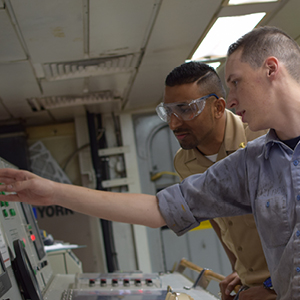
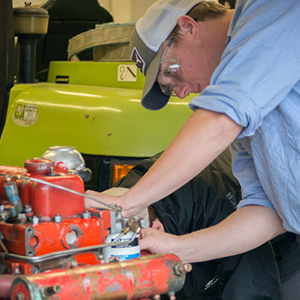
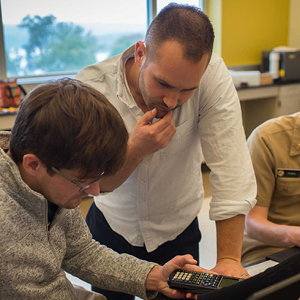
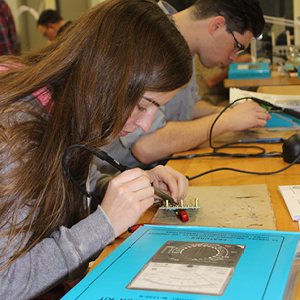







All Rights Reserved © 2026 • Web issue?
Non-Discrimination Notice • Privacy Policy & GDPR